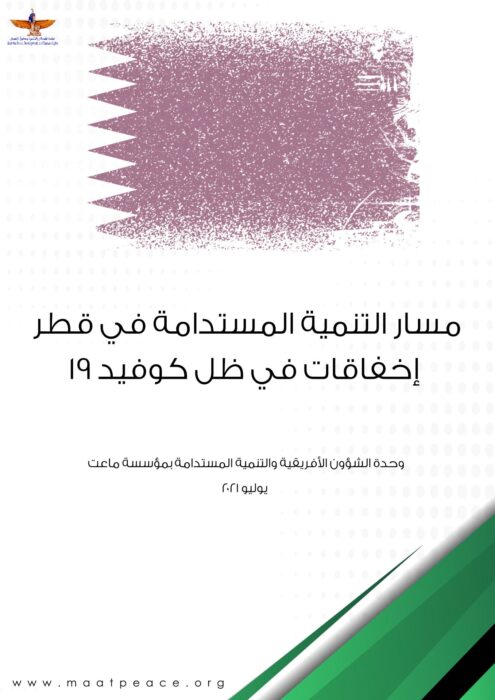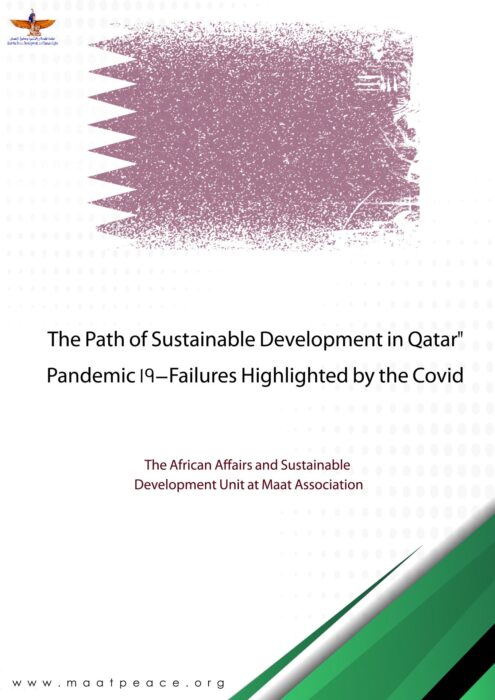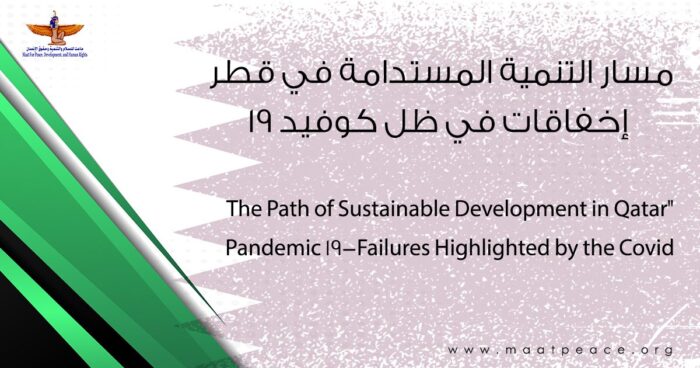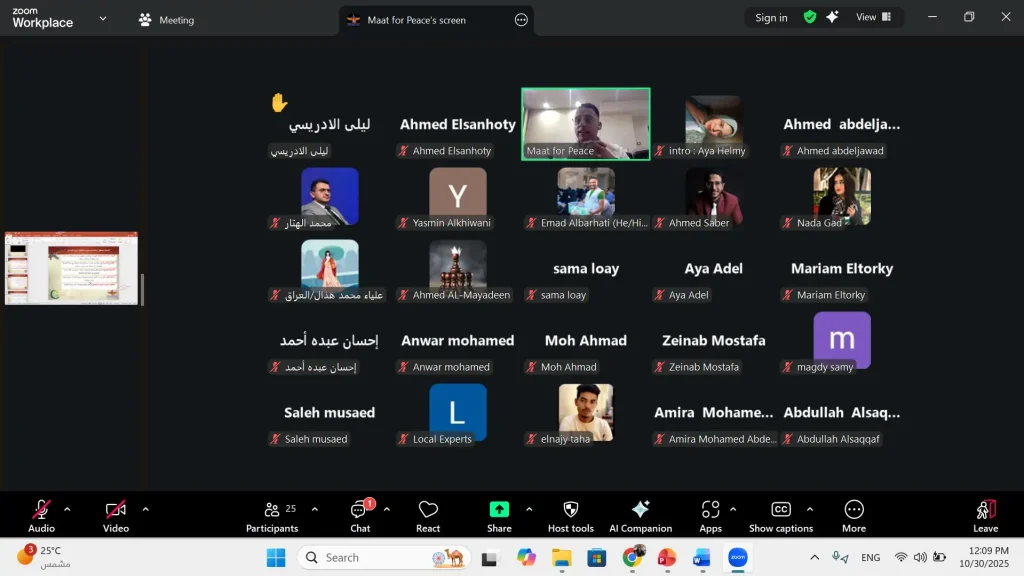Maat: The majority of legislative frameworks in Qatar are loose and inconsistent with sustainable international standards
“Aqeel”: Qatar's voluntary report overlooked a number of failures in the development path revealed by the Covid-19 pandemic
Abdul-Nasser: The Qatari government must pay attention to women's issues and include them in the overall strategy
After the termination of the activities of the high-level political forum on sustainable development, and after the government of the State of Qatar had its national report on the achievement of sustainable development reviewed, Maat for Peace, Development and Human Rights issued a shadow report parallel to the voluntary report of the state party entitled "The Path of Sustainable Development in Qatar... Failures Highlighted by the Covid-19 Pandemic.
The report discusses sustainable development in Qatar to compare the conditions before and during the Covid-19 pandemic. The report focuses mainly on three primary axes in the 2030 development agenda; the economic axis, which focuses on SDGs 1, 2, 3, & 8 as the most important goals related to achieving economic development; the social axis, which addressed goals 4 & 5; and the security axis which thoroughly discussed the extent to which Goal 16 has been achieved. The report concludes with a set of recommendations presented by Maat to stakeholders concerned with the development agenda in the State of Qatar, which must be taken into account in order to implement the sought after development plans.
Commenting on the report, Ayman Okeil, president of Maat for Peace, Development and Human Rights, said that Qatar's voluntary report has overlooked a number of shortcomings in the development path that were only detected and brought to light by the Covid-19 pandemic. The global health pandemic has shown a number of gaps in the development path to achieve the 2030 Agenda for Sustainable Development, especially since the Covid-19 pandemic has had a significant impact on sectors such as health, education and economic growth of countries due to the slowdown in production operations as a result of the closure, and the dedication of the bulk of government expenditure to reforming the damages caused by the pandemic.
On a parallel level, Okeil recommended the Qatari government and the relevant stakeholders to expedite the amendment of legislation related to administrative decisions that are inconsistent with human rights principles, with the need for providing judicial guidance, in line with the SDG 16.
In the same context, Asmaa Abdul-Nasser, a researcher at the African Affairs and Sustainable Development Unit at Maat, stressed the importance of considering the conditions of Qatari women, given the society’s extremely restrictive customs and traditions that limit women's freedom. Abdul-Nasser also recommended the government of Qatar to pay more attention to women's issues and work to include their primary rights within the comprehensive strategy adopted by the government.
Notably, Sustainable Development is among the issues of concern to Maat for Peace, Development and Human rights, being a member of the General Assembly for the Economic, Social & Cultural Council (ECOSOCC) of the Africa Union (AU). Moreover, Maat serves as an Observer in the African Commission on Human and People’s Rights (ACHPR) and as a Northern African Coordinator in the major Non-Governmental Organizations (NGOs) in Africa of the United Nations Department of Economic and Social Affairs (UN DESA).
![]()
 |
 |
shortlink: https://maatpeace.org/en/?p=33426












